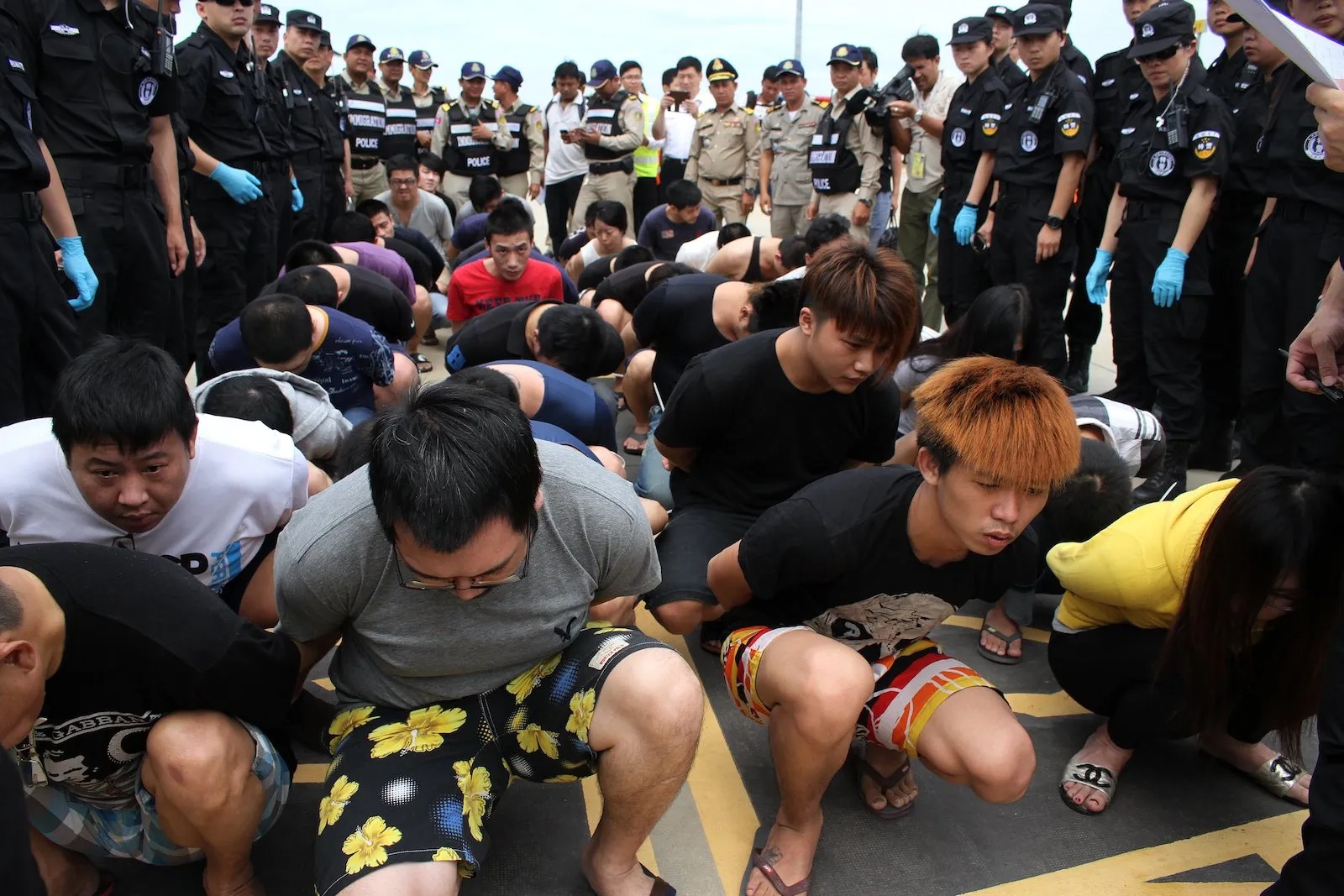The Sinister Web of Chinese Criminal Gangs: From Myanmar to UAE, Innocent Expats Fall Prey
In a chilling expose of transnational organized crime, the insidious operations of Chinese criminal gangs have been uncovered, stretching from the remote corners of Myanmar to the glittering cities of the United Arab Emirates (UAE). These nefarious networks have been preying on unsuspecting expats, luring them into a web of deceit, exploitation, and modern-day slavery. The Ajman Police in the UAE made a startling discovery on April 20th, 2024, when they apprehended around 30-35 Chinese nationals, along with approximately 150 Indians and Pakistanis, from the Ajman-I Tower, a residential building in Ajman. The scene that unfolded was a stark reminder of the inhumane treatment meted out by these criminal gangs, as the Chinese individuals were forced to sit bare-bodied in the open area while the police conducted their investigation.
Investigations revealed that the Chinese nationals had been actively involving Indians and Pakistanis in a sinister operation of making fake financial calls, targeting unsuspecting Europeans. The scale of the operation was so vast that it caught the attention of the United States government, which promptly advised the UAE authorities to take stringent measures to curb such practices emanating from their soil. Shockingly, even after the initial police crackdown and warnings, the Chinese perpetrators remained undeterred and continued their nefarious activities. They shifted their base partially from the Ajman-I Tower to a nearby location, the Grand Mall in Ajman City, highlighting the audacity and impunity with which these criminal gangs operate.
The modus operandi of these Chinese criminal networks is as cunning as it is exploitative. They lure unsuspecting Indians and Pakistani nationals with the promise of lucrative salaries, offering them UAE Dinar 3000 per month along with free food and lodging. The victims, often on visitor or tourist visas, are further ensnared by the extension of their visas, creating a false sense of legitimacy and security. The recruitment process itself is a meticulously crafted facade, with the Chinese operatives conducting computer tests and interviews to select their prey. The tentacles of these Chinese criminal gangs extend far beyond the UAE, with their operations deeply entrenched in the lawless regions of Myanmar. In a disturbing development, China’s crackdown on scam centers along its border in northern Shan State has forced many of these criminal enterprises to migrate to Karen State. The repatriation of almost 45,000 people from the scam syndicates’ compounds, including major crime bosses, has provided Chinese authorities with new intelligence on the Myanmar military’s profitable involvement with these centers. This has resulted in China demanding the arrest of senior military officers, shaming the junta and eroding the army’s ability to protect its criminal interests.
The demise of scamming enclaves like Kokang in northern Shan State has led to a disturbing trend of these syndicates relocating to other countries in the region, such as Laos and Cambodia, while also regenerating within Myanmar. The vast majority of these criminal operations have been absorbed by the lawless zones in Karen State along the Thai border, where Karen militia forces harbor them, distancing themselves from the junta to better secure their criminal empires. The complex web of conflicting interests in Karen State, involving various armed groups and international actors, has made it increasingly difficult for law enforcement agencies to tackle these criminal networks effectively. Key individuals from the Karen Border Guard Force (BGF), now rebranded as the Karen National Army (KNA), such as Maung Chit Thu, Mote Thun and Tin Win, have been directly involved in providing space, security and support for these Chinese-led criminal enterprises. Other actors from groups like the Democratic Karen Benevolent Army (DKBA) and even individuals associated with the Karen National Liberation Army (KNLA) have also been implicated in this nefarious network. The situation in Karen State calls for urgent international attention and a coordinated response. It is imperative that the United States, along with regional governments, especially Thailand, exert leadership in supporting a strong and timely response to dismantle these criminal networks. A multi-national effort is required to cut off cross-border services to the enclaves in Karen State, mount an international law enforcement task force to bring perpetrators to justice, facilitate rapid repatriation of enslaved labor from the scam centers, and disrupt connectivity between these networks across Southeast Asia and beyond.
Moreover, robust support must be provided to the Karen National Union (KNU) police to strengthen their ability to investigate, disrupt and arrest perpetrators while remaining resilient against efforts by the KNA and DKBA to capture or co-opt them. Following the example set by the United Kingdom in sanctioning key criminal actors in the Karen scam operations, other nations must also take decisive action. The expose of Chinese criminal gangs operating from Myanmar to the UAE is a chilling reminder of the dark underbelly of transnational organized crime. It is a clarion call for the international community to unite in the fight against these nefarious networks that prey on innocent expats and perpetuate modern-day slavery. Only through concerted efforts, shared intelligence, and unwavering commitment can we hope to dismantle these criminal empires and protect the vulnerable from their clutches. The time for action is now, before more lives are shattered by the sinister web of Chinese criminal gangs.













